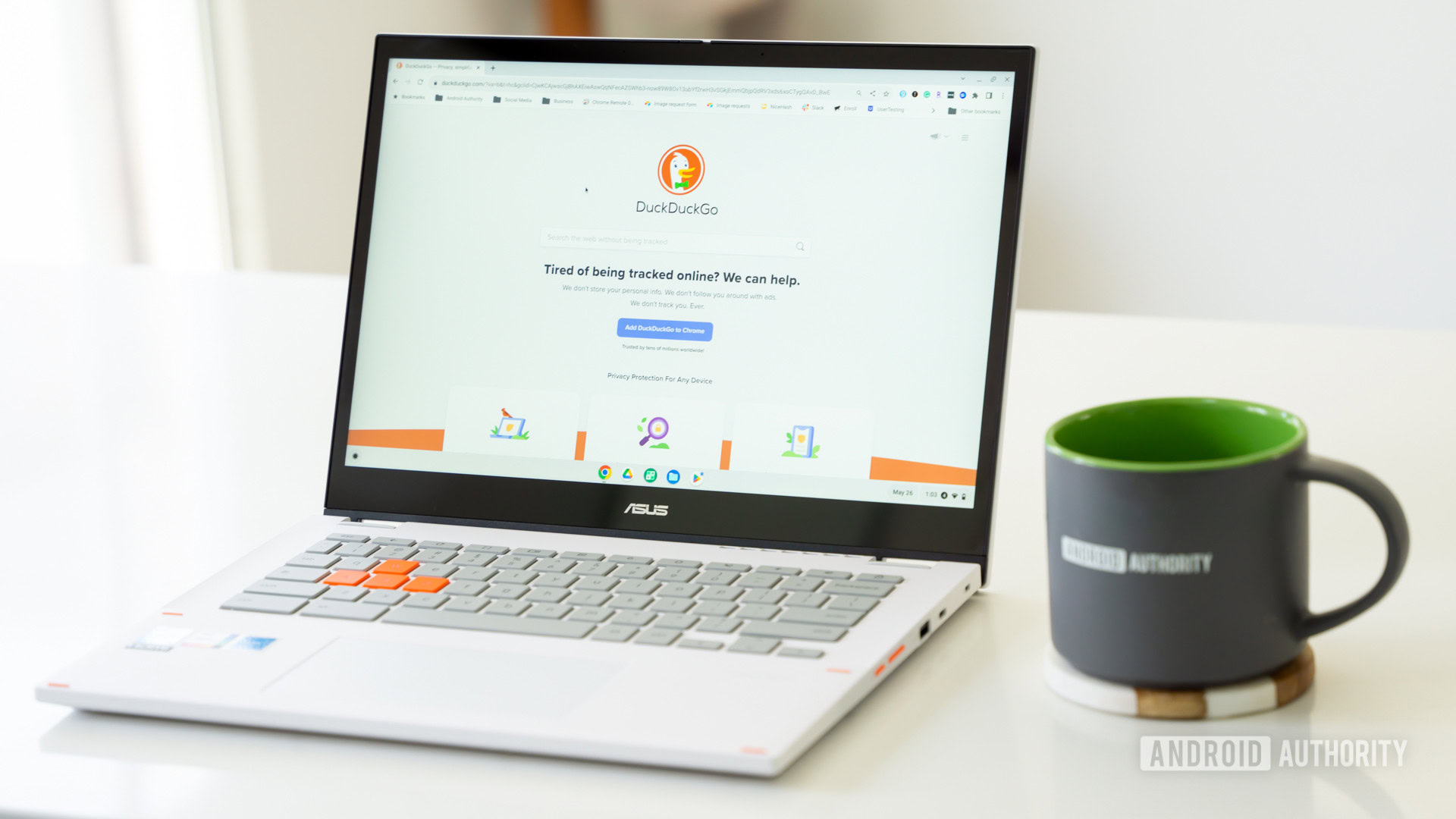Affiliate links on Android Authority may earn us a commission. Learn more.
Is DuckDuckGo safe? Just how private is your online search?
Published onMay 26, 2023

With the increasing concerns around internet privacy and data protection, many users are turning to privacy-focused search engines. DuckDuckGo, an alternative to data-tracking giants like Google, has caught the public’s eye due to its promise of privacy. But the big question remains – is DuckDuckGo safe? Let’s delve into it.
QUICK ANSWER
Yes, DuckDuckGo is generally considered safe. It's a privacy-focused search engine that doesn't track users, collect or share personal information, or sell users' data to third parties.
KEY SECTIONS
What is DuckDuckGo?
DuckDuckGo is a search engine, not too dissimilar to Google or Bing, with a critical distinction – it prioritizes user privacy above all. Unlike most competitors, DuckDuckGo doesn’t create user profiles or track individual search behavior. It focuses on delivering the same search results to everyone without violating users’ privacy rights. See our complete guide to learn more about DuckDuckGo.
Is DuckDuckGo Safe?
The safety of DuckDuckGo revolves around its commitment to user privacy, which we can explore through three essential questions: Do they collect data, do they sell data, and do they track you?
Does DuckDuckGo Collect User Data?
DuckDuckGo does not collect personal information. This means your search history isn’t stored, and you aren’t tracked across time or different devices and services. Consequently, there’s no risk of your data being leaked from DuckDuckGo because they simply don’t have it.
Does DuckDuckGo Sell Data?
DuckDuckGo does not sell users’ data to third parties. They don’t have any data to sell because they don’t collect it. Therefore, you won’t see ads targeted based on your search queries, a stark difference from many other search engines.
Does DuckDuckGo Track You?
DuckDuckGo refrains from tracking your online behavior. It doesn’t monitor your activity across the web or store your personal information. DuckDuckGo isn’t invested in creating a comprehensive profile of your search habits, a plus for those who highly value privacy.
For more information, you can read DuckDuckGo’s privacy policy.
How Does DuckDuckGo compare to other search engines?
Regarding safety, DuckDuckGo offers a different proposition than mainstream search engines like Google and Bing. These search engines track user behavior to provide personalized search results and targeted advertisements. While this can be helpful in some cases (like finding a local coffee shop), it can also feel intrusive to users who value their privacy.
On the other hand, DuckDuckGo doesn’t track users or personalize search results based on past behavior. This results in finding less biased information at the expense of a less personalized search experience.
DuckDuckGo has a smaller target on its back regarding data safety because it doesn’t store user data. Data breaches, which can expose personal information, are less of a concern with DuckDuckGo because there isn’t any personal data to be compromised.
So, is DuckDuckGo safe? By data protection and user privacy standards, the answer is a resounding yes. Still, while DuckDuckGo is more private than many other search engines, it does not guarantee complete anonymity. For full online privacy, consider additional measures, such as using a VPN and one of the best privacy browsers.
FAQs
DuckDuckGo doesn’t offer personalized search results as it doesn’t track user data. For some, this may result in less relevant search results. It also has fewer integrated services, such as Google Maps or Gmail.
In terms of privacy, yes. DuckDuckGo doesn’t track or store personal data, unlike Google, which uses tracking to personalize search results and ads.
DuckDuckGo doesn’t track user activity or store personal data. However, your Internet Service Provider (ISP) can still see what you’re doing online regardless of which search engine you use.
DuckDuckGo doesn’t store user data or search history, making it difficult for anyone, including governments, to track your activity. Still, governments could request your search history and other information from your Internet Service Provider (ISP).